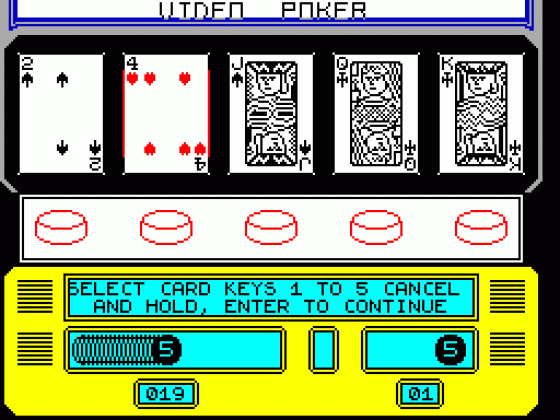Other Reviews Of Las Vegas Video Poker For The Spectrum 48K
Video Poker (Mastertronic)
A review by (Crash)
Video Poker (Mastertronic)
A review by Rick Robson (Your Sinclair)
Video Poker (Entertainment USA)
A review by John Gilbert (Sinclair User)


 1st December 1986
1st December 1986


